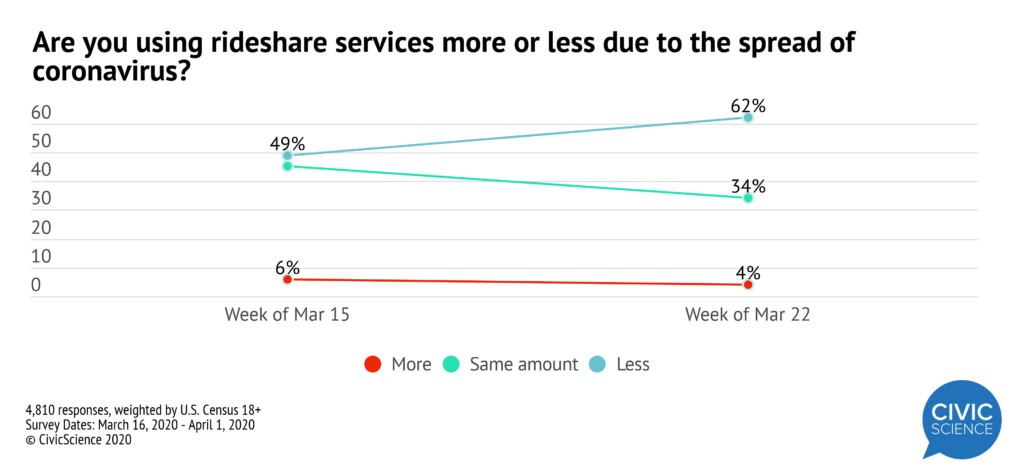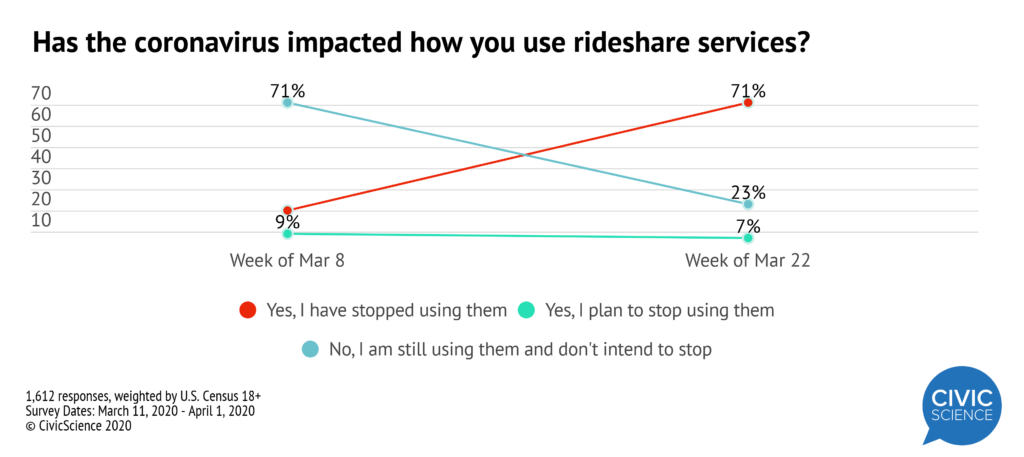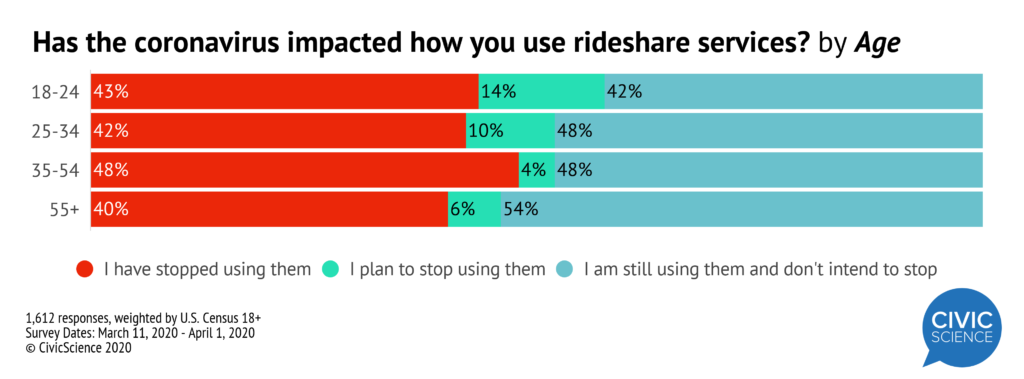Much like most other aspects of modern life, the coronavirus crisis has upended the ridesharing world.
In just two weeks, the amount of people who are using rideshare services like Uber and Lyft has dropped dramatically. Among people who use ridesharing services, the percentage of people who are using them less has grown over 26%. Furthermore, in two weeks the amount of people who have stopped using them completely has surged to 71%.
Furthermore, in two weeks the amount of people who have stopped using them completely has surged to 71%.
[shade-open-form]
 While the travel industry has certainly taken a hit, for ridesharing it looks particularly grim. Half of the general population, who don’t feel safe traveling at all, have stopped using rideshare services. And the same holds true for Americans who are shying away from public spaces, with half of rideshare users who are concerned about being in public spaces curtailing their use of ridesharing apps.
While the travel industry has certainly taken a hit, for ridesharing it looks particularly grim. Half of the general population, who don’t feel safe traveling at all, have stopped using rideshare services. And the same holds true for Americans who are shying away from public spaces, with half of rideshare users who are concerned about being in public spaces curtailing their use of ridesharing apps. When it comes to overall travel, Gen Z is the most likely to say they still feel safe out and about despite the spread of the coronavirus; therefore it is unsurprising that 14% of rideshare users in that age cohort plan on quitting the service, but have yet to take the key out of the ignition.
When it comes to overall travel, Gen Z is the most likely to say they still feel safe out and about despite the spread of the coronavirus; therefore it is unsurprising that 14% of rideshare users in that age cohort plan on quitting the service, but have yet to take the key out of the ignition. What is surprising is that those 55 or older, the most concerned about traveling, said they are still using rideshare services without intending to stop at the highest rate compared to the other generations.
What is surprising is that those 55 or older, the most concerned about traveling, said they are still using rideshare services without intending to stop at the highest rate compared to the other generations.
Feelings Aside, the Physical World Is Still Off-Limits
Another factor contributing to decrease in rideshare usage is likely changing employment situations. Some people are working from home while others have had their hours cut, or worse, lost their job. The data show 34% of rideshare users who normally use the service to commute to work have completely stopped using them.  It is likely that rideshare usage will continue to drop. What will be interesting to see is what kind of rebound the sector sees when the worst is over. Will Americans in busy cities forgo public transportation in larger numbers, thus spilling business over to rideshare apps? Or will more people choose to walk, thereby hurting Lyft and Uber’s bottom lines? These are questions CivicScience will certainly be tracking in the coming months.
It is likely that rideshare usage will continue to drop. What will be interesting to see is what kind of rebound the sector sees when the worst is over. Will Americans in busy cities forgo public transportation in larger numbers, thus spilling business over to rideshare apps? Or will more people choose to walk, thereby hurting Lyft and Uber’s bottom lines? These are questions CivicScience will certainly be tracking in the coming months.
[shade-close-form]








